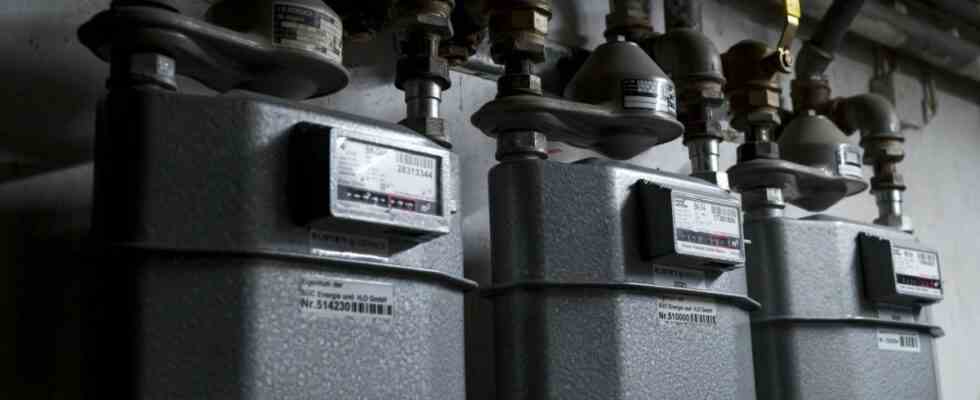Gas customers in Germany cannot expect relief from the gas price brake before March. This was made clear on Monday by representatives of the federal government and the commission of experts set up by them. The desire for an earlier gas price brake “is a bit counter to reality,” said government spokesman Steffen Hebestreit in Berlin.
The expert commission had suggested that the state pay the down payment for private gas customers and small companies once in December. The actual price brake should then take effect for private households and small companies from March if possible. On Friday, the Prime Ministers’ Conference called for the gas price brake to be introduced as early as January 1, and Chancellor Olaf Scholz (SPD) then announced that he wanted to explore a start at the beginning of the year and consult with the energy suppliers. Hebestreit now said that there were “practical reasons” that would prevent the price brake from being brought forward. He did not give details.
“People need planning security”
According to SZ information, the government is treading water in the development of the gas price brake because new obstacles keep appearing. These include difficulties under constitutional and European law, technical and practical problems as well as the question of whether and how citizens and companies have to pay tax on the state aid they receive. In addition, it seems that leading government and coalition politicians repeatedly make specifications that then turn out to be unworkable at the working level.
The result is a mess, while at the same time the end of the year is fast approaching. This even jeopardizes the promise of the federal government to take over the down payments in December. So far, it is not even clear within the coalition what amount has to be transferred to which supplier and in what way.
“People need planning security. People need to know what to expect,” said economist Isabella Weber, who is a member of the expert commission, of the SZ. Weber has been in favor of a gas price brake for months. Regarding the problems of an early start, she said: “The billing systems of the gas suppliers are a hurdle. We have many providers with very different systems.”
A relief for heating oil and pellets should also be examined
And there is another problem that worries the Chancellery and the ministries involved: How can the aid be designed in such a way that tenants already have an impact on their accounts in December? For them, the reimbursement of the December deduction would normally only be visible in the coming year with the landlord’s ancillary cost statement for 2022. However, the coalition fears resentment among tenants if they find out that, compared to homeowners, they are supposedly only being relieved with a delay of months.
Government spokesman Hebestreit said that all parties involved are striving to introduce the gas price brake as quickly as possible. “But it also has to work.”
In this situation, SPD faction leader Rolf Mützenich proposed at the weekend to also relieve buyers of heating oil and pellets in December. “We would like to include this heat supply in the relief,” he told the editorial network Germany. Hebestreit said that this question had to be clarified in the responsible working group of the Chancellery, Economics and Finance Ministries.
The Federal Association of Energy and Water Industries (BDEW) suggested that the state also make an advance payment in January in order to bridge the time until the gas price brake in March. BDEW President Marie-Luise Wolff explained that the required conversion of the IT processes is so complex that the vast majority of energy suppliers “can’t handle it” by January 1st.

